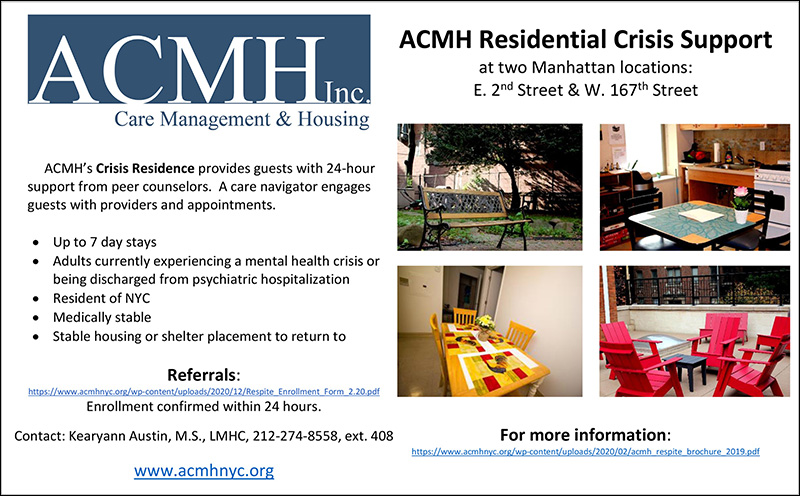Searching for the right job, or even any job, can be stressful for weeks, months, or even years. The challenges may not even stop after obtaining gainful employment. They can bleed into maintaining that job, which then shields us from engaging in the stressful job search process. These challenges may not look the same for everyone, as some individuals face unique challenges that others may not have to worry about. Individuals with mental illnesses and/or substance use disorders are among those who face unique challenges when finding and maintaining employment.

One of the challenges that can get in the way of individuals with mental illness obtaining employment is stigma. There can be hesitancy for companies to offer employment opportunities to individuals with mental illnesses due to a perceived risk of failure (Manning & White, 1995). What if an individual with mental illness completes their goal and gets hired by a company? Knowing that companies may hold stigmas against you can create new or exacerbate existing stress for an individual. Association for Rehabilitative Case Management and Housing (ACMH) peer specialist Jonathan Landau has experienced many challenges finding and maintaining employment.
Mr. Landau recounts, “It was hard to hold a job with a disability, especially teaching, which is challenging to begin with…especially when employers don’t know about your condition.”
When then asked if having employers not being aware of his disability adds to the stress of maintaining his job, Mr. Landau responded, “Yes. But it is a catch-22. Because you never have to reveal your condition to your employer. It is suggested not to.”
You get past one stressful experience (searching for a job) only to face another stressful experience (maintaining that job). So, how does one maintain a job while facing these challenges? Mr. Landau says it is about “finding the perfect fit.”
The challenges, such as facing stigma from your employers, dissipated when Mr. Landau obtained employment as a peer specialist. When asked why the peer specialist position was a perfect fit for him, he stated, “Because of lived experience mostly. I can relate to what the clients share and try to guide them the best that I can.”
Aside from monetary gains for bills, sustenance, and leisure, working a job is linked to social inclusion. Work provides individuals with mental illness the chance to participate in society as active citizens and is essential in both maintaining mental health and promoting recovery from the mental health problems experienced (Boardman et al., 2003).
Individuals who receive mental health services experience a process that can remove them from ‘normal’ social roles and entitlements. That can lead to internalization for that individual of being the sick or ‘patient’ role as the dominant feature of their lives (Boardman et al., 2003). Obtaining and maintaining employment can compensate an individual with a social identity, status, and a sense of personal achievement (Shepherd, 1989), counteracting the individual’s primary identification in life as the “patient.”
I am proud that ACMH is an agency that values and promotes peer support within the services it provides and to those it employs. I think it is beautiful that peer support can have a symbiotic relationship between the individual receiving services and the individual providing them. On the one hand, peer support can assist an individual in dampening the challenges they face with maintaining employment. On the other hand, peer support can help an individual receive the services on their road to recovery and assist them with breaking free of the challenges they face with finding and maintaining employment. It can be the perfect fit for all those involved.
Jonathan Landau, MA, is a Peer Program Specialist at ACMH. Kristopher Migliore, LMSW, is Director of Recovery & Empowerment Support at ACMH. Find us at www.acmhnyc.org.
References
Boardman, J. E. D., Grove, B., Perkins, R., & Shepherd, G. (2003). Work and employment for people with psychiatric disabilities. The British Journal of Psychiatry, 182(6), 467-468.
Manning, C., & White, P.D. (1995). Attitudes of employers to the mentally ill. Psychiatric Bulletin, 19, 541-543.
Shepherd, G. (1989). The value of work in the 1980s. Psychiatric Bulletin, 13(5), 231-233.









